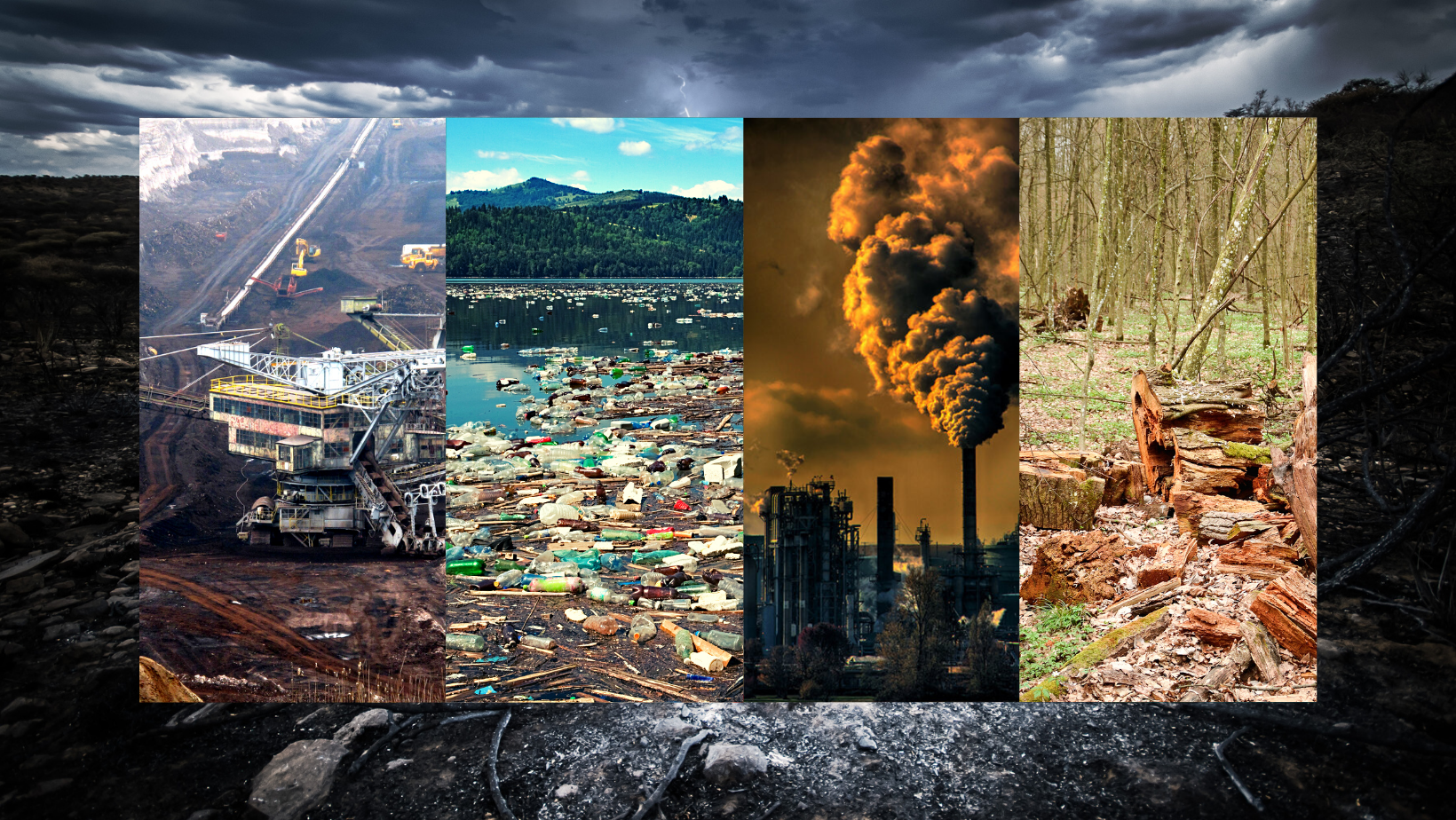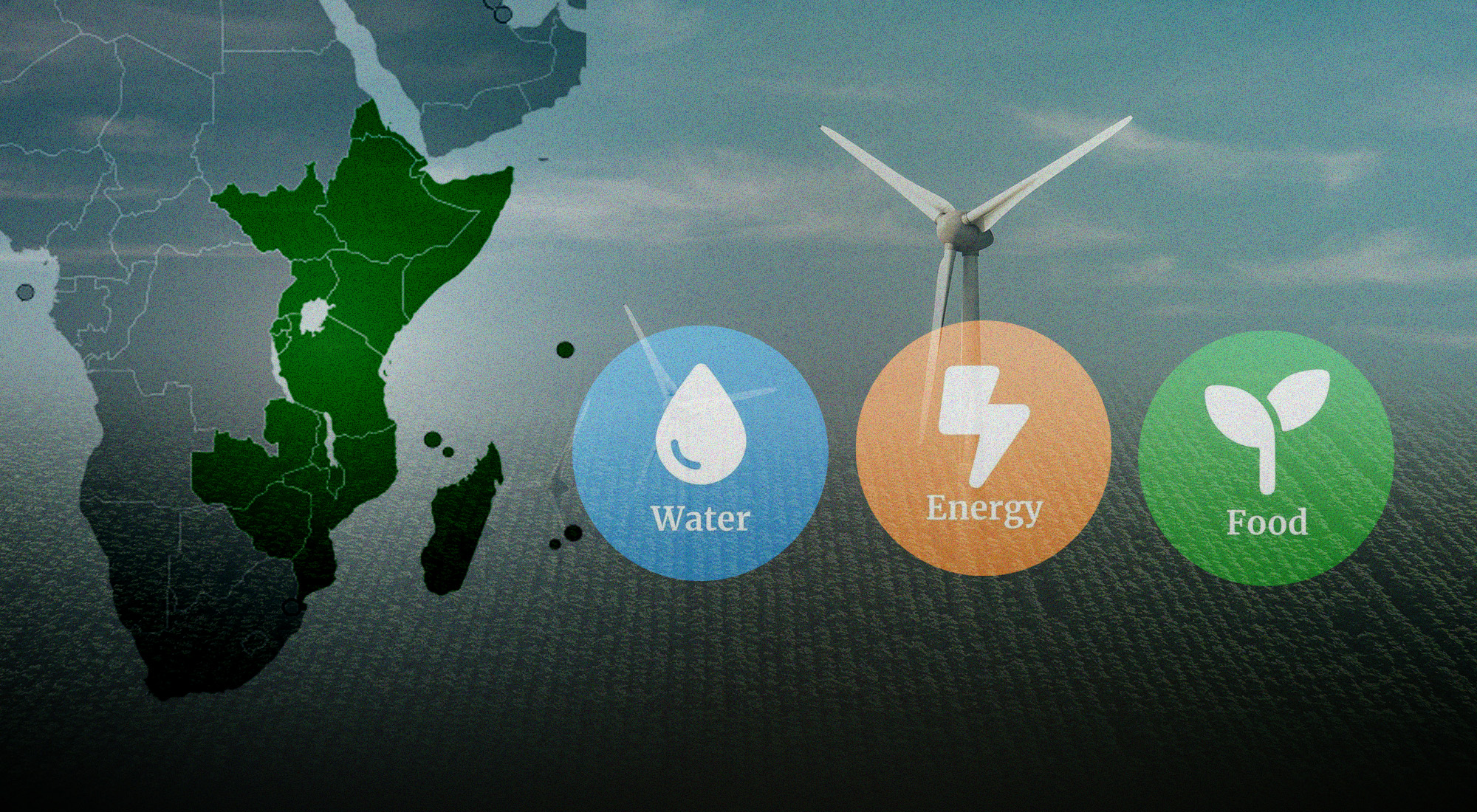Decades of environmental destruction have not been met with a sufficient response. It is far from disputed that governments around the globe have not done enough to protect the planet from ailments such as climate change, the destruction of habitats and biodiversity loss, thus threatening the fragile stability of the Earth system. The response to governments’ impotence has arrived in a myriad of forms; from lively protests to heavy lobbying and intensive court action. Recent years have seen the emergence of a new strategy: the Stop Ecocide[1] international campaign has revived an idea that has floated in academic circles since the 1970s[2] – the creation of an international crime of ecocide.
The Stop Ecocide campaign has gained traction in mainstream academic and legal communities. Leading public figures, such as Phillippe Sands QC, were brought in to join an independent expert panel with the purpose of drafting a workable legal definition for the crime of ecocide. The panel released its definition and commentary on the crime of ecocide in June 2021, attracting heavy media coverage and commentary in outlets such as the Guardian,[3] BBC[4] and more.
The equating of the widespread destruction of the environment to the widespread destruction of humans (termed genocide) and holding those responsible equally accountable, is without a doubt an effective rhetoric act. There is little doubt that framing high level officials as ‘international criminals’ could have a chilling effect on their action, as could the potential prosecution of politically influential civilians in transnational corporations. What is less clear, however, is whether the attempt to push the extensive act of environmental destruction into the sphere of international criminal activity (currently occupied exclusively by perpetrators of genocide, aggression, war crimes and crimes against humanity) could have a real benefit and what the practical legal ramifications might be.
This short analysis will begin by explaining the term ‘ecocide’, by exploring its legal history and origins, its meaning and the reasons for its current enthusiastic adoption by environmental activists and academics. We will then continue to review recent developments in terminology and law, with particular concentration on the definition adopted by the Independent Expert Panel for the Legal Definition of Ecocide, assembled by the Stop Ecocide campaign. In particular, we will discuss the merits and criticisms of this definition and more notably, how the attempt to fit environmental protection within the sphere of international criminal activity raises a number of legal, conceptual and even philosophical difficulties, particularly when the nature of an environmental crime can be theoretically subjective.
What is ecocide?
The first operational step towards the protection of the environment under international criminal law was taken in 1984, when the International Law Commission proposed that an offence of severe damage to the environment should be included in the draft Statute of the International Criminal Court, spurred by the disastrous effects that Agent Orange had on the Vietnamese environment.[5] In 1995, the International Law Commission convened a Working Group to further examine the specific issue of ‘wilful damage to the environment’.[6] The Working Group recommended that a crime of environmental damage should be added as a standalone offence and within the categories of crimes against humanity and war crimes.[7] However, the notion of a standalone crime against the environment was never accepted,[8] and only four crimes were eventually recognised under the 1998 Rome Statute of the International Criminal Court: the crime of genocide, crimes against humanity, war crimes and the crime of aggression.[9]
The failure to include a crime of ‘ecocide’ within the Rome Statute did not mean that environmental protection was to be entirely disregarded by the International Criminal Court. To begin with, a ‘war crime’ within the Rome Statute contained the act of “intentionally launching an attack in the knowledge that such attack will cause… severe damage to the natural environment which would be clearly excessive in relation to the concrete and direct overall military advantage anticipated.”[10] Furthermore, the 2016 ICC Office of the Prosecutor’s Policy Paper on Case Selection and Prioritisation instructed that priority should be afforded to the prosecution of existing crimes under the Statute (genocide, crimes against humanity, war crimes and the crime of aggression) that included an element of environmental damage and illegal natural resource exploitation,[11] indicating that the court will consider the environmental impact of existing crimes when it reviews its case load.
These developments are without a doubt important; they demonstrate that the field of international criminal law does not ignore the environmental angle and that it is mindful of the link between nature and the atrocious activities that are at its core. At the same time, these steps are also limited in the sense that they protect nature only in a very specific context (e.g., as part of an intentional armed attack) or as linked with specific atrocities against humans. They do not value nature as an independent subject that deserves protection on its own merit, regardless of external considerations. Indeed, Christina Voigt (a member of the Independent Expert Panel, who drafted the ‘ecocide’ definition), explains the motivation to explore a new definition for the crime of ecocide in the following words:[12]
“It was considered important to capture certain categories of damage, including damage to the environment per se, independent from harm to human life. None of those three existing crimes seemed to provide a conceptual basis for such purely environmental damage.”
Subsequently in 2017, the Stop Ecocide international campaign was founded. As stated above, the objective of this campaign is to re-open the Rome Statute and add to it a fifth international crime; the crime of ecocide. As a key step towards this objective, a legal definition of ‘ecocide’ was developed by the Independent Expert Panel in June 2021, in the hope that it would be considered by the international community as an addition to the Rome Statute of the International Criminal Court.
While the impact of this first step is still too early to assess, it is clear that it has not been overlooked; references to the new ‘ecocide’ definition have already been made in a number of parliamentary reports and debates around the world.[13] As the wheels are now in motion, it seems apt to address this definition in more detail.
Proposed definition and difficulties
The Indepedent Expert Panel’s definition of the term ‘ecocide’ is as follows:
“For the purpose of this Statute, “ecocide” means unlawful or wanton acts committed with knowledge that there is a substantial likelihood of severe and either widespread or long-term damage to the environment being caused by those acts.”[14]
Initially, one might assume or even hope that several activities will fall within this definition, including climate-related damage or deforestation that renders part of the rainforest inhabitable for ecosystems and indigenous communities alike. The campaign also suggests that activities such as deep-sea mining and mineral/oil extraction might fall under the remit of ecocide.[15] However, given the explanatory definitions of some of the words used, the term ‘ecocide’ becomes very vague and possibly also narrow, inappropriate and even inoperative. Indeed, almost all of this term’s components could be criticised.
To begin with, the act must be ‘unlawful or wanton’. The ‘unlawful’ requirement is relatively unhelpful as many (possibly most) large-scale polluting/damaging acts are, in fact, lawful under domestic laws and may even be encouraged (or conducted) by the state in which they take place.
The ‘wanton’ requirement is defined as a ‘reckless disregard for damage which would be clearly excessive in relation to the social and economic benefits anticipated’.[16] Also here, there is no doubt that very common acts such as pollution and the emission of greenhouse gasses (GHGs) do fall within this definition, especially as damage caused by pollution and climate change are fairly well-established. There is no escaping the thought that, as a result, many nations could be criminalised by this definition, including those in the Global South. Declaring some of the Global South nations that currently emit high levels of GHGs as part of their efforts to achieve development as ‘criminals’ does not feel constructive, nor does it seem correct. One may also question the wisdom in making such a statement and its impact on climate/bio-diversity negotiations.
Further, a prosecution case of large-scale deforestation/pollution could be reasonably rebutted by the social and economic benefits gained and therefore excluded from the definition of ‘wanton’. This explanation raises even more questions. First, does it mean that the most harmful environmental acts, such as large-scale deforestation or the emission of GHGs, are to be excluded from this definition? If this is the case, what should be the point of creating such a crime, if the biggest polluters are to be excluded? Furthermore, who should decide whether the damage is ‘clearly excessive in relation to the social and economic benefits’? Is it not up to the sovereign state to establish the balance as to what will be ‘clearly excessive in relation to the social and economic benefits anticipated’? Should we not assume that polluting industries, where operating lawfully, are deemed as ‘socially and economically’ beneficial for their host nation? Will it be appropriate to ask the ICC (with its own legitimacy concerns) to second-guess or even criticise states’ development policies? And lastly, how should we decide who the beneficiaries are of the said ‘economic and social benefits’? The communities which suffer? Or perhaps the economic beneficiaries such as the logging companies, their employees, and the general public that benefits from their tax money? Or maybe consumers in the West? These questions are all pinching the most sensitive nerves and debates concerning the balance between the states’ sovereignty and global values, the legitimacy of international law and institutions, and the evermore contentious North-South relations (especially as the Stop Ecocide campaign’s origins are in the North).
Conversely, the vagueness in defining the law can also work favourably, in that the prosecutors and court will be left to define the parameters once the evidence has been fully elucidated. Admittedly, it is impossible to predict the broad range of environmentally harmful activities that may be committed by humans in the future, particularly as technology, industry and nations continue to develop and evolve. The Independent Expert Panel therefore had to allow for a certain amount of flexibility and a “vague” definition; with all of the questions that it creates, this ‘vagueness’ could be viewed as necessary.
Next, the ‘ecocide’ definition dictates that damage to the environment must be ‘severe and either widespread or long-term’ in nature. These terms, however logical, are extremely vague and difficult to operationalise. The Panel explains that ‘severe’ means “a damage which involves very serious adverse changes, disruption or harm to any element of the environment, including grave impacts on human life or natural, cultural or economic resources.”[17] This definition, while seemingly correct, mostly repeats the meaning of the word ‘severe’ rather than provide any operational guidance on how to use it. Perhaps more problematically, however, it is also extremely subjective. Human activity may harm (and is harming) the environment in a myriad of ways and to a variety of degrees. There is no doubt that all environmental harms are concerning, but which one should be ‘severe’ enough to be labelled as a ‘crime’? Some will decry the destruction of a specific eco-system or a certain habitat as a crime (for example, a coastal project destroying the nesting site of sea turtles), while others will think about Agent Orange-type images, or the sinking of an island-nation due to rising sea levels. Surely the term ‘severe’ was used in order to create some sort of a hierarchy between diverse environmental harms, to decide which ones will be prosecuted and which ones will not. This hierarchy, however, remains elusive.
Institutional challenges
It is not just the definition that is facing criticism with regards to the prosecution of a new environmental crime. The court itself is conceivably not the most appropriate court to prosecute such complex crimes, given that its background and current practice is firmly embedded within the gravest human-rights violations, stemming from the atrocities of the Second World War. That said, there are certainly techniques that the court could rely on:[18] The court could hire a special adviser, as it does when prosecuting sexual and gender-based crimes. The Court could also create ‘green chambers’, rely on a list of external experts and solicit submissions from relevant amici curiae. Further, prosecutors with a more appropriate background could be enlisted to manage the crimes of ecocide.
Furthermore, the usual concerns regarding enforcement and cooperation must not be ignored. It is proposed that the creation of ecocide may operate as a deterrence for state actors, transnational corporations and their investors.[19] Although this is possible, it is largely dependent on state co-operation, the principle of complementarity and adequate enforcement provisions. Firstly, as is always the case, states may not be willing to surrender a corporation working within their territory, particularly if that corporation supports their economy.[20] Furthermore, as it currently stands, the Rome Statute only has jurisdiction to prosecute natural persons and not a corporate body. While officers of that corporation may be liable, issues with regards to who should equitably be held accountable are still relevant, especially where these officials did not breach domestic laws. Lastly, powerful states are unlikely to be investigated due to lack of jurisdiction and enforcement, and given that China, India, Russia and the US are themselves not party to the Statute, this could render any new international offence ineffective and unjustly skew the ICC’s prosecutorial strategy towards States that bear less culpability. This is likely to reinforce post-colonial critiques of the ICC, ignoring the underlying socio-political drivers of environmental crimes and the disproportionate impact on developing countries.[21]
Wider policy considerations
There are also wider issues to consider. The debate that took place at the House of Lords regarding the UK’s role in promoting the concept of ‘ecocide’ has been revealing in this respect. When asked whether the UK government should support the addition of the crime of ecocide to the Rome Statute, the Lords Whip, Baroness Bloomfield of Hinton Waldrist, stated that indeed the UK is supporting a stronger environmental action as part of its activity within the Climate Change Convention.[22] This point is important: environmental destruction and the manner in which it is being balanced against other interests, such as economic and social development, are already being negotiated and discussed within environmental institutions. These institutions have their own dynamics and sensitivities and indeed, the balance that is being achieved in these institutions is often extremely delicate. Take the climate change negotiations, for example: years of stagnation have ended only due to the adoption of the Paris Agreement – an extremely soft and fragile balance, one that does not impose any hard obligation on states to meet specific reduction emissions.[23] Insisting on the ‘hard’ Kyoto model would likely have killed the entire process. Idealistic as it may be, the blunt, fundamentalist, guilty/not guilty criminal law approach, as well as the stigmatisation of polluters as ‘criminals’, are all standing in stark contrast to these gentle and fragile dynamics.
Another point that was highlighted in the debate that took place in the UK’s House of Lords, was the limitations of the effectiveness of adding the crime of ecocide to the Rome Statute. When challenged on whether international law against these activities [mining and deforestation, AK&CLR] could become a catalyst for finding new and sustainable ways of operating, Lord Robathan replied:[24]
“As a conservationist and environmentalist, I am deeply concerned about the destruction of the rainforest in South America and south-east Asia, the increased use of coal in China and, indeed, the consequences of climate change. Nevertheless, I do not quite understand—perhaps she can enlighten me—what exactly making this a crime would do that would impact on, for instance, the Chinese Government or the Brazilian Government.”
Concluding remarks
This short analysis could be wrongly understood as destructive; as pointing at problems rather than offering solutions. We do not believe that the mere idea of defining a crime of ecocide is wrong. The Independent Expert Panel’s definition – as we see it – is an excellent point of departure, one that will hopefully lead to more debate and refinement. Importantly, this future debate should question not only the definition itself, but also the choice of venue; the decision to fit this subject matter within a framework that is aimed to address the most horrific crimes against humans. One may wonder, in this context, if the clear rhetoric benefits from the association of environmental destruction with atrocities against humans, justifies the myriad of difficulties that are involved in this process.
[1] Stop Ecocide International, Activating a Law to Protect the Earth, https://www.stopecocide.earth/.
[2] The concept of ecocide was discussed in those early years by authors such as Barry Weisberg, Arthur W. Galston and Richard Falk, initially as a response to the US destruction of forests (‘Agent Orange’) in Vietnam.
[5] Cassese, A. (2008). International Criminal Law. 2nd ed. Oxford: Oxford University Press.
[6] This concept was included in the initial ILC Draft Code of Crimes against the Peace and Security of Mankind. See Article 26 of this Draft (‘wilful and severe damage to the environment’). https://legal.un.org/ilc/documentation/english/reports/a_46_10.pdf.
[7] International Law Commission. (2017). Summaries of the Work of the International Law Commission: Draft Code of Crimes Against the Peace and Security of Mankind (Part II) – Including the Draft Statute for the International Criminal Court. https://legal.un.org/ilc/summaries/7_4.shtml#a14.
[8] The original proposal included 12 crimes, most of which were dropped due to “the strong opposition, criticisms or reservations of certain Governments with respect to those crimes” (ibid). Christian Tomuschat – a member of the International Law Commission at the time – explains that “[a]lthough this paper mentioned the possibility of maintaining crimes against the environment as an autonomous category of offences, it was pointed out orally that, in a spirit of compromise, it was not necessary to do so.” Christian Tomuschat. (1996). Crimes Against the Environment. Environmental Policy and Law 26, pp. 242-243.
[9] The crime of aggression was defined only later on in 2010, and came into force in 2018.
[10] See Article 8(2)(b)(iv) of the Rome Statute.
[11] International Criminal Court. (2016). Office of the Prosecutor: Policy Paper on Case Selection and Prioritisation. https://www.icc-cpi.int/itemsdocuments/20160915_otp-policy_case-selection_eng.pdf.
[12] Voigt, C. (2021, July 3). “Ecocide” as an International Crime: Personal Reflections on Options and Choices. EJIL: Talk! https://www.ejiltalk.org/ecocide-as-an-international-crime-personal-reflections-on-options-and-choices/.
[13] See review in the Stop Ecocide International website: https://www.stopecocide.earth/what-we-do; see also this debate from the UK’s House of Lords: https://hansard.parliament.uk/Lords/2021-07-21/debates/3AD1BE27-B0A5-4C68-9A39-0E6566E63FCF/Ecocide.
[14] Stop Ecocide International .(2021). Legal Definition of Ecocide. https://stopecocide.earth/legal-definition.
[15] Stop Ecocide International. (2020). What is Ecocide? https://www.stopecocide.earth/what-is-ecocide.
[16] Stop Ecocide International .(2021). Legal Definition of Ecocide, Article 8 ter, https://stopecocide.earth/legal-definition.
[17] Stop Ecocide International.(2021). Legal Definition of Ecocide, Article 8 ter, https://stopecocide.earth/legal-definition.
[18] See, for example, proposals made by one of us elsewhere: Kent, A. (2015). Renewable Energy Disputes Before International Economic Tribunals: A Case for Institutional ‘Greening’? Transnational Dispute Management, 12 (3).
[19] Higgins, P., Short, D. and South, N. (2013). Protecting the Planet: A Proposal or a Law of Ecocide. Crime, Law and Social Change, 59, pp. 251-266.
[20] Wijdekop, F. (2016). Against Ecocide: Legal Protection for Earth. Great Transition Initiative. https://greattransition.org/publication/against-ecocide.
[21] Clarke, K. M. (2009). Fictions of Justice: The International Criminal Court and the Challenge of Legal Pluralism in Sub-Sahara Africa. New York: Cambridge University Press.
[22] For example, when asked whether the UK will promote the adoption of the new ecocide definition, Baroness Bloomfield of Hinton Waldrist answered: “I know that an international group has recently defined ecocide, but I say again that the UK is a key player in all the multilateral forums focusing on tackling climate change.” See, https://hansard.parliament.uk/Lords/2021-07-21/debates/3AD1BE27-B0A5-4C68-9A39-0E6566E63FCF/Ecocide.
[23] Unlike the former Kyoto Protocol, the Paris Agreement mechanism does not ask States for any legally binding emission cuts. See debate from the UK’s House of Lords, debate from the UK’s House of Lords, https://hansard.parliament.uk/Lords/2021-07-21/debates/3AD1BE27-B0A5-4C68-9A39-0E6566E63FCF/Ecocide.
[24] Debate from the UK’s House of Lords, https://hansard.parliament.uk/Lords/2021-07-21/debates/3AD1BE27-B0A5-4C68-9A39-0E6566E63FCF/Ecocide .









